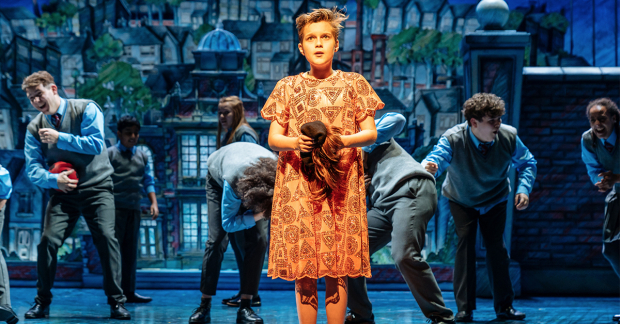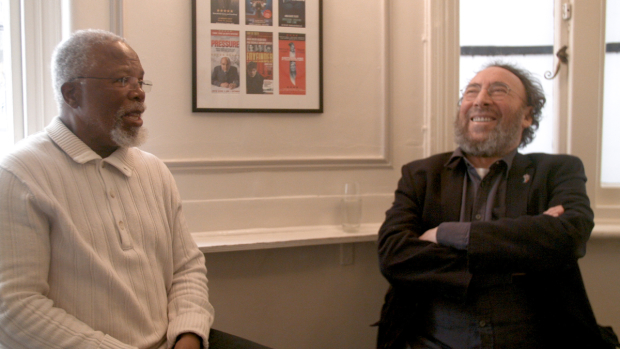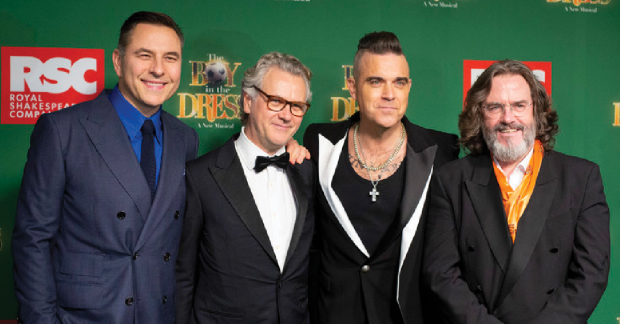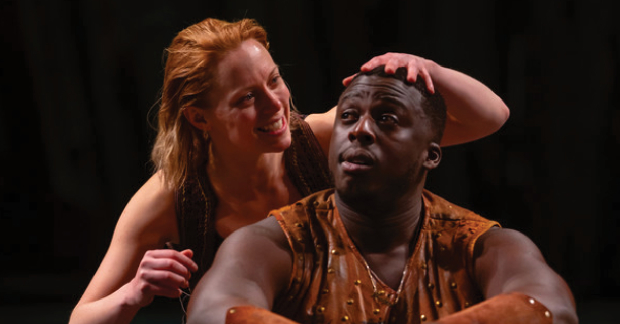Review: Kunene and the King (Ambassadors Theatre)

© RSC, photo by Ellie Kurttz
It's always a privilege to be in the same theatre as John Kani. This distinguished and powerful South African actor and writer spent most of his adult life fighting against the evil of apartheid; he lost an eye for his courage, thanks to a police beating after he returned from triumph on Broadway in Sizwe Banzi is Dead, one of the defining plays of protest in the apartheid era, which he devised with Athol Fugard and the actor Winston Ntshona.
Now he has written Kunene and the King, which is a play about the legacy of those years, and the way the past still defines present day South Africa, 25 years on from the first post-apartheid democratic elections. He also stars, opposite Antony Sher, who plays Jack, a querulous, grumpy old actor, who has been diagnosed with terminal liver cancer, but keeps his spirits up with his belief that he will be able to give a performance as King Lear. Kani is his live-in carer, Lunga Kunene, whose arrival confuses and alarms Jack because he had been expecting that a nursing sister would be blonde, blue-eyed and bosomy.
As the two men get to know one another, yoked together by the actor's declining health, they explore the history of their country, telling vivid stories of their past lives. Kunene is bitter that his dreams of being a doctor were derailed by both the Soweto uprising and by the ‘comrades' who destroyed his father's shop. Jack talks contemptuously about 'your people', and reminiscences about a life of privilege. It becomes clear that while truth is spoken, reconciliation remains tragically difficult. "You got your protection," says Kunene at one point. "But when do I get my better future?"
Corruption, violence, the blighted dreams of the new South Africa all get an airing; as does white privilege that still refuses to see the black population with fair and unprejudiced eyes. When the men can come together, in rare moments of warmth, is when they begin to discuss Shakespeare – and Lear in particular. "I wouldn't have advised him to do that if I were there," says Kunene, worrying that Lear's decision to split his kingdom between his daughters deprives the ancestors of their say in his affairs.
These are the passages where the play is at its most vital. The sense that Shakespeare's humanity can speak to everyone – Kunene, like Kani himself, first encounters Julius Caesar in an isiXhosa version which was not banned under apartheid because it showed the fate of conspirators – gives them a common ground on which to explore their lives and – in the case of Jack – finally find some empathy for others.
But although it is directed with gentle precision by Janice Honeyman, mining the relationship between the two men for all its nuance, it suffers from odd discrepancies of tone. I wanted to like it more than I did, but I kept being thrown by the fact that at one moment the two were at each other's throats – most shockingly when Jack throws his soiled underpants in his carer's face – and the next they were laughing at each other's fallibilities.
So although the play is tough-minded and its words always ring true, the relationship between the two men didn't quite. But both Sher – disgustingly cantankerous and truly frightened – and Kani give it their all. Kani in particular paints powerfully a picture of a man whose essential goodness and dignity hides a constant anger at all that has happened to him. He is wonderful to watch.
















